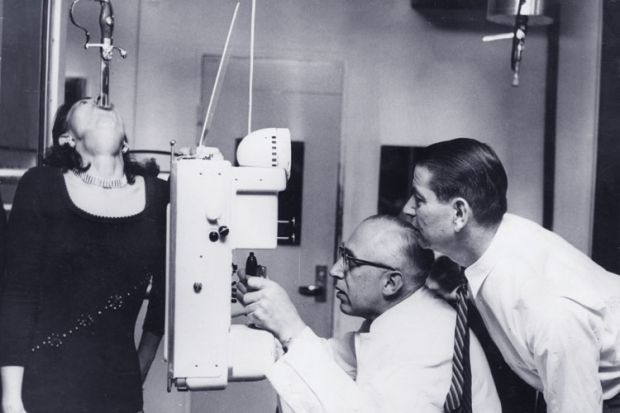Fears about the consequences of non-submission to the research excellence framework will be heightened by the revelation that management academics at Swansea University typically will be moved to teaching-only roles if they do not have four papers deemed to be of at least 3* quality.
The announcement was made in a memo sent last month to Swansea’s School of Management by its deputy dean for operations, Niall Piercy. Except for early career researchers and those with “special circumstances”, academics who do not have the requisite number and quality of papers will be obliged to teach for up to 18 hours a week.
This compares with an average teaching load of six hours for those designated “research active” if judged by the university’s REF submissions assessment to hit its quality and quantity benchmark.
A Swansea academic, who did not want to be named, condemned the assessment exercise as “arbitrary” and said the policy had been introduced without consultation. In some cases, teaching allocations for 2013-14 announced on the back of the policy contradicted both earlier announcements and employment contracts, the academic added.
“The lack of collegiality and dismissive attitude to current faculty by the new regime is going to have an adverse effect on staff retention, recruitment and the student experience, from which the school will take many years to recover – if it does at all,” the academic said.
A Swansea spokeswoman said the plans were in line with the university’s “innovative” Academic Career Pathways scheme, which aims to “ensure that academic strengths, whether in research, teaching, the wider student experience, leadership or innovation…are all appropriately recognised”.
She added: “The…strategy means introducing higher teaching hours in order to increase the amount of contact time our students have with academic staff. In a highly competitive market, it is vital that we seek to enhance student experience and improve the learning environment.”
Last month, Times Higher Education revealed that all University of Leicester academics who are not submitted to the REF will be moved to teaching-only contracts or given up to a year to improve their research performance unless they can prove extenuating circumstances.
Blood ties
Professor Piercy’s appointment has been the subject of controversy. In May, three months after he took up his role, his father, Nigel Piercy, was unveiled as the School of Management’s new dean and his father’s partner, Nikala Lane, was made reader.
The Swansea spokeswoman described Professor Nigel Piercy as “an academic with a global reputation” who will “help sustain the university’s upward trajectory”, while both his son and Dr Lane were appointed after an “open recruitment process”.
“It is far from unusual for partners and family members to work together in academic roles,” she said.
Professor Niall Piercy, who gained his PhD in 2004, entered two papers to the 2008 research assessment exercise when working at the University of Bath. Both were published in the Journal of Strategic Marketing, which in 2009 was rated 2 (out of a possible 4) by the Association of Business Schools’ influential International Guide to Academic Journal Quality.
